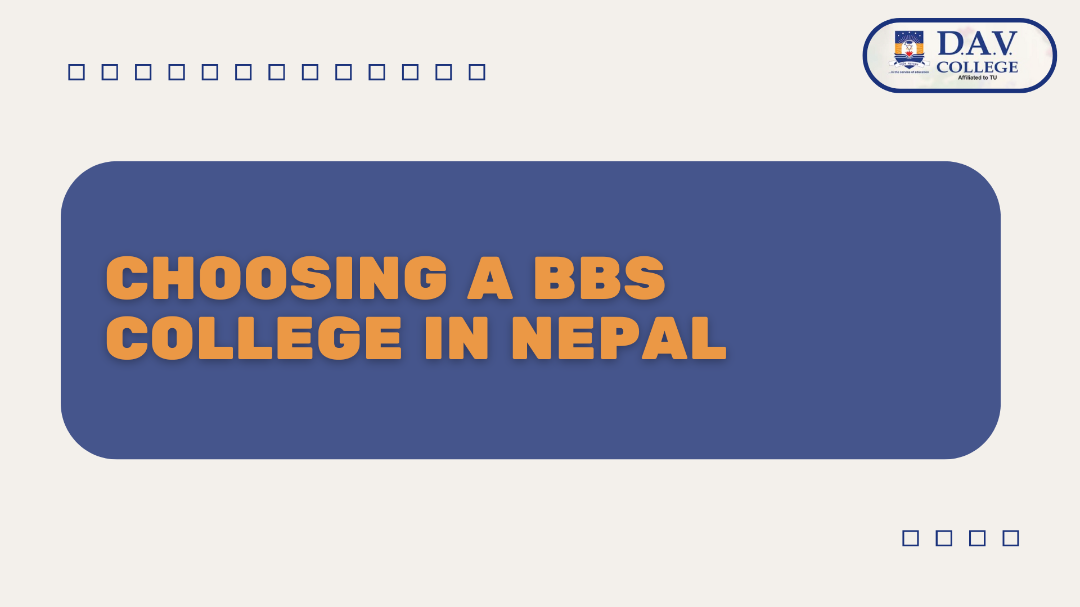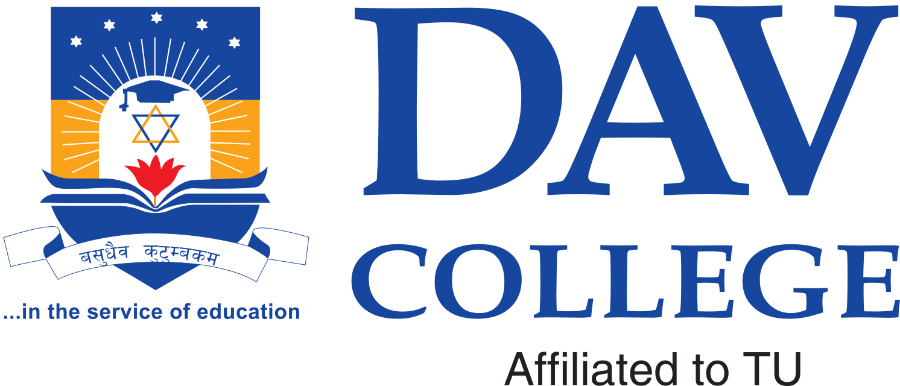5 Common Mistakes Students Make When Choosing a BBS College in Nepal
Published on 2025-07-23

Choosing the right BBS (Bachelor of Business Studies) college is one of the most critical decisions for any student aiming to build a business-oriented career in Nepal. Yet, every year, many students fall into the same avoidable traps that not only cost them money but also time, energy, and opportunities.
If you’re planning to pursue BBS, this guide is here to help you steer clear of the five most common mistakes students make while selecting their college. Let’s walk through them—so you can make a confident, future-proof choice.
1. Prioritizing Proximity Over Quality
The Mistake:
Many students choose a BBS college simply because it’s close to home. While saving on transportation or accommodation may seem practical, this mindset often leads to a compromise in academic quality.
Why It’s a Problem:
A college nearby may lack experienced faculty, weak industry connections, or outdated course delivery methods. Being close doesn’t always mean better.
What You Should Do Instead:
Evaluate colleges based on academic strength, reputation, alumni success, extracurricular exposure, and career support—not just distance. If a better opportunity exists elsewhere, consider relocating. Your career is worth the effort.
2. Ignoring Accreditation and University Affiliation
The Mistake:
Some students are lured into institutions that lack proper affiliation with recognized universities, such as Tribhuvan University (TU), Pokhara University, or Purbanchal University.
Why It’s a Problem:
Degrees from unaffiliated or poorly recognized colleges may not be accepted for higher studies or employment, especially internationally. You might end up with a degree that holds little real-world value.
What You Should Do Instead:
Before enrolling, verify that the college is officially affiliated with a recognized university. Check the affiliation certificate and consult the university's website or the UGC (University Grants Commission) Nepal listing.
3. Overlooking Teaching Methodology and Course Delivery
The Mistake:
Many students focus only on the course content, without understanding how it will be taught. They assume all BBS programs are delivered the same way.
Why It’s a Problem:
A theory-heavy, lecture-only approach can leave you ill-prepared for the dynamic business world. If you’re not exposed to presentations, real-life case studies, group projects, and business simulations, you’ll graduate with a theoretical degree but limited practical skill.
What You Should Do Instead:
Ask how the college conducts its classes. Do they emphasize interaction, presentations, guest lectures, internships, or project-based learning? Choose institutions that blend theory with real-world application.
4. Failing to Consider Career Support and Alumni Network
The Mistake:
Students often don’t investigate what happens after graduation. They enroll without understanding how the college supports internships, placements, or networking opportunities.
Why It’s a Problem:
Without active career support, you might find yourself lost after graduation—sending CVs into a black hole. A strong alumni network and placement cell can make a massive difference in launching your career.
What You Should Do Instead:
Look into the college’s placement history, internship partners, and alumni success stories - DAV College excels in all of these areas. Are their graduates working in respected firms? Do they offer career counseling or support for entrepreneurship? These factors are vital.
5. Choosing Based on Peer Pressure or Trend
The Mistake:
Many students choose a BBS college because their friends are going there—or because it’s the most talked about option on social media.
Why It’s a Problem:
Just because a college is popular doesn’t mean it aligns with your personal goals, learning style, or plans. Following others blindly can leave you disengaged and unmotivated.
What You Should Do Instead:
Select a college that aligns with your unique vision. Define what you want from your BBS journey—be it entrepreneurship, public service, accounting, or marketing—and pick a college that aligns with that path, regardless of where your friends are heading.
How to Make a Smart BBS College Choice in Nepal
Avoiding these five mistakes begins with thorough research. Here’s a mini-checklist to guide your decision:
- Verify university affiliation
- Explore faculty background and teaching methods
- Check past placement records
- Visit the campus and attend an orientation, if possible
- Speak with alumni or current students
- Evaluate infrastructure, library, tech resources, and learning environment
- Don’t rush—take your time to decide
Remember, a college is not just a place to study—it’s the launchpad for your career. Be intentional. Ask questions. Think long-term.
Final Thoughts
Making the right BBS college choice in Nepal doesn’t have to be overwhelming. By staying informed and steering clear of these five common mistakes, you can ensure your college experience is not only academically enriching but also professionally rewarding.
Choose wisely—your future depends on it.
Frequently Asked Questions
What should I prioritize when choosing a BBS college in Nepal?
Focus on accreditation, quality of teaching, real-world learning exposure, and career support. Don’t let location or peer pressure drive your decision.
How do I check if a BBS college is recognized?
Visit the website of Tribhuvan University or UGC Nepal. Look for the college’s affiliation documents or contact the university directly.
Is it worth paying more for a reputed BBS college?
Yes, if the college offers better teaching, infrastructure, exposure, and placement support. Think of it as an investment in your future, not an expense.
